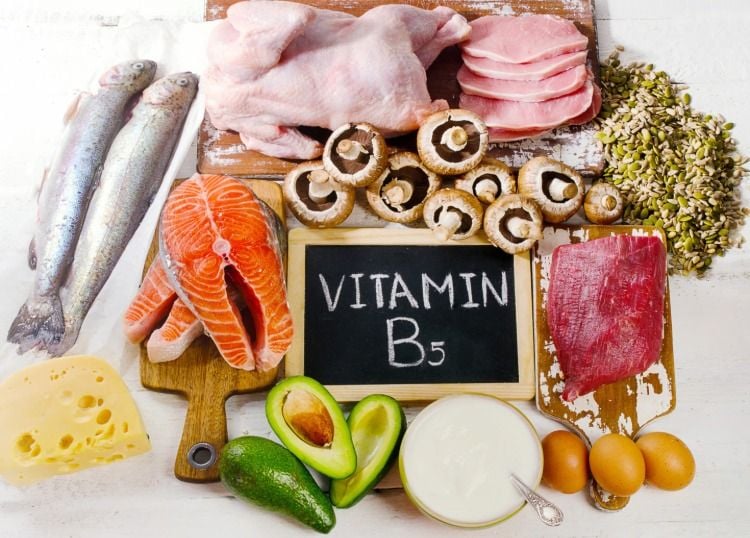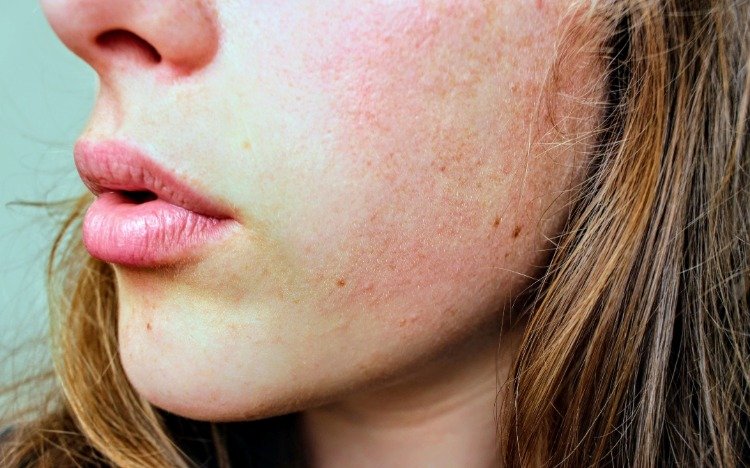Prevent vitamin B5 deficiency and take advantage of health benefits
One of the health benefits of vitamin B5, also known as pantothenic acid, is the relief from many illnesses. Some of these include asthma, hair loss, allergies, stress and anxiety, respiratory problems and heart problems. This vitamin also helps to boost immunity and reduce arthritis and signs of aging. Consuming more vitamin B5 foods increases your body's resistance to various types of infections. The substance also stimulates physical growth and plays an important role in the treatment of skin diseases such as acne.
Symptoms of vitamin B5 deficiency

It is well known that vitamin B5 is beneficial in the treatment of serious mental disorders such as chronic stress and anxiety. A healthy diet should contain an adequate amount of this vitamin to ensure good health and proper functioning of all organ systems. It fulfills a variety of functions in our body, including the production of neurotransmitters in the brain, the production of steroids and the extraction of fats, proteins and other vital nutrients from food. In short, the essence of vitamin B5 affects every important aspect of your health.

The most common and most irritating symptom of a vitamin B5 deficiency is the burning foot syndrome. In this case, the affected person has a numb feeling in the feet, which is accompanied by severe inflammatory pain. There is also a constant feeling of tiredness and weakness throughout the body. Other main symptoms are insomnia, anemia, vomiting, muscle contraction and abnormal skin. A vitamin B5 deficiency is extremely rare in humans, however, because pantothenic acid is found in almost all foods. A healthy and varied diet should provide a person with enough of it.
Important sources and dosage

The main sources of pantothenic acid are mushrooms, broccoli, cabbage, legumes, salmon and cabbage vegetables. However, there are other foods that contain this water-soluble vitamin. These include natural products such as eggs, fish, brewer's yeast, nuts, milk and milk products such as cheese. You can also get the vitamin from wheat, peanuts, soybeans and molasses. For example, avocados are a great source. When normal B5 intake returns to normal, many of the symptoms mentioned above are reversed. Experts recommend taking the vitamin daily as follows:
- Infants 0-6 months – 1.7 milligrams (mg) a day
- 7-12 months – 1.8 mg per day
- Children from 1 to 3 years – 2 mg per day
- Children 4-8 years – 3 mg a day
- 9-13 years – 4 mg a day
- Men and women 14 years and older – 5 mg per day
- Pregnant women – 6 mg a day
- Breastfeeding women – 7 mg per day
Pantothenic acid is widespread in food, but is lost in processing, such as canning, freezing, and grinding. To ensure adequate intake, you should consume the food fresh rather than unrefined. As with all water-soluble vitamins, vitamin B5 is lost during cooking. Scientists have found that bacteria can produce pantothenic acid in the intestinal mucosa, but no evidence is yet available.
Skin care for deficient vitamin B5

Vitamin B5 has been shown to reduce acne and benefit many other areas of the body. Some studies show that pantothenic acid reduces the number of acne-related facial defects when you take them as a dietary supplement. The researchers found a significant mean reduction in the total number of lesions after 12 weeks of taking such a preparation. However, the authors call for further studies to confirm the results. Other studies suggest that vitamin B5 intake can help lower cholesterol and blood triglyceride or fat levels. You should only conduct such a course under medical supervision.
Possible risks and side effects

Pantothenic acid is taken as a supplement for a number of diseases, but there is insufficient evidence that it is effective in most of these cases. Vitamin B5 could even aggravate the interactions between drugs used to treat Alzheimer's disease. For people staying within or slightly above the recommended daily allowance, using a nutritional supplement is likely safer. However, if you are considering a nutritional supplement, you should first consult a doctor.

A very high dose of, for example, 10 to 20 grams (g) per day can cause diarrhea and increase the risk of bleeding. Taking vitamin B5 as a supplement can lead to an imbalance in other B vitamins. For this reason, it is preferable to take a vitamin B complex. This should be taken with water after eating. The vitamin B5 effect of some drugs for Alzheimer's disease increases. These are known in medicine as cholinesterase inhibitors. Taking supplements with these drugs can also cause side effects.

People who use blood-thinning medications, such as anti-aspirin, should be careful when using vitamin B5 supplements, as they can increase the risk of bleeding. Women should not take more than 6 mg a day if they are pregnant and 7 mg if they are breast-feeding, as this may not be safe. It is always best to consult a doctor before taking a nutritional supplement, especially for people with an existing health condition and those who are taking other medications. So vitamin B5 is an important vitamin that helps your body build blood cells and convert food into energy. However, as long as you eat a balanced and healthy diet and contain a variety of foods, you are unlikely to ever have a vitamin B5 deficiency or need supplements.
Preventing vitamin B5 deficiency and taking advantage of health benefits appeared first on Deavita.com | Living ideas, design, hairstyles, make-up, lifestyle, health and beauty tips.





















